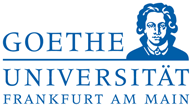Project WoBi
Word Stress in Bilingual Acquisition
The project WoBi investigates how children with German as their second language (Age of Onset: 2–4 years and 6–7 years) acquire the typical stress patterns of German.
Languages differ regarding word stress (e.g., in German: MA-ma, but in French: ma-MAN). The acquisition of word stress is mastered around age 3 in typical monolingual acquisition (Grimm, 2009), i.e. it belongs to the early acquired language phenomena. To date it is unclear how and how fast children with German as their second language acquire the specific rules for word stress in German. This may be especially challenging when children’s first language has different word stress rules.
The project WoBi investigates how children with German as their second language with different ages of onset to the L2 German acquire the typical stress patterns of German. Besides a parental questionnaire the method of Elicited Imitation is used: children are asked to repeat non-words that follow the segmental structure of trisyllabic words of German. LiSe-DaZ® (Schulz & Tracy, 2011) is administered to exclude bilingual children with Specific Language Impairment.
Selected publications
- Müller, A., Schulz, P. & Tracy, R. (2018). Spracherwerb. in C. Titz, S. Geyer, A. Ropeter, H. Wagner, S. Weber & M. Hasselhorn (Hrsg.), Konzepte zur Sprach- und Schriftsprachförderung entwickeln. (S. 53-68). Stuttgart: Kohlhammer.
- Schulz, P. & Grimm, A. (2012). Spracherwerb. In H. Drügh, S. Komfort-Hein, A. Kraß, C. Meier,G. Rohowski, R. Seidel und H. Weiß (Eds.), Germanistik. Sprachwissenschaft – Literaturwissenschaft – Schlüsselkompetenzen (pp. 155-172). Stuttgart/ Weimar: J. B. Metzler.

